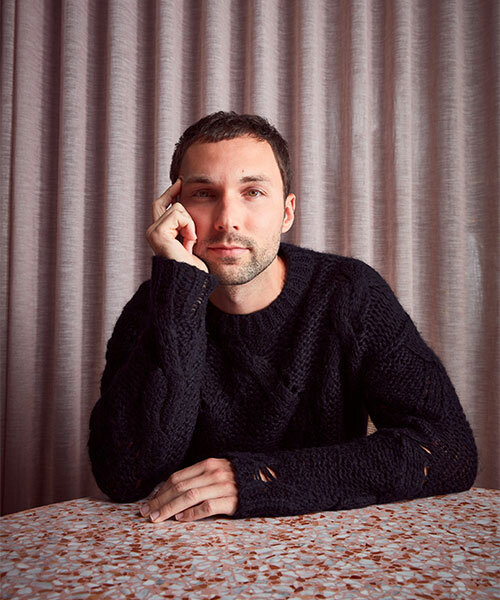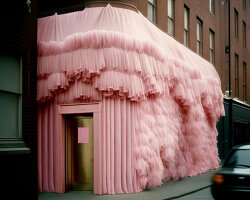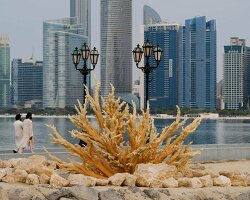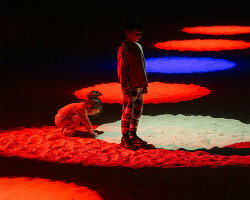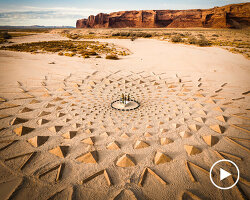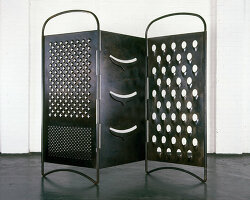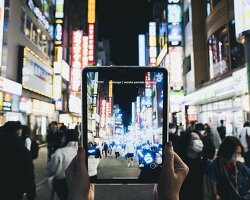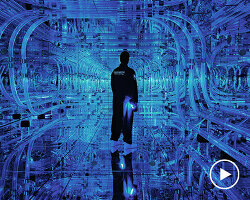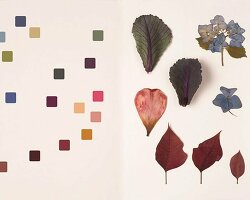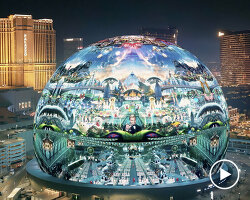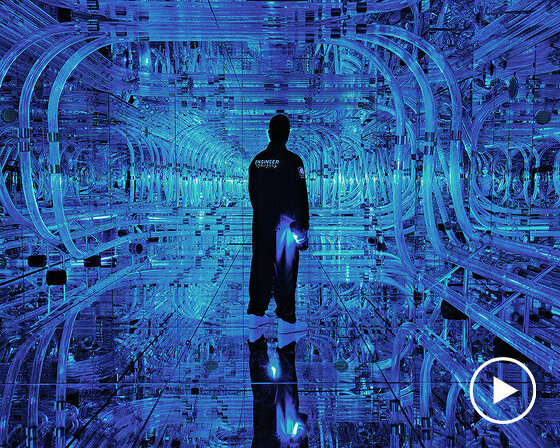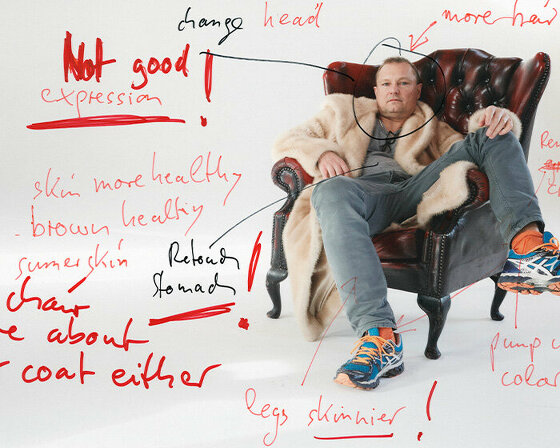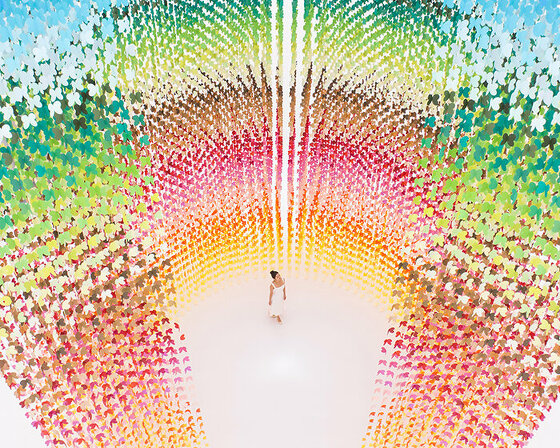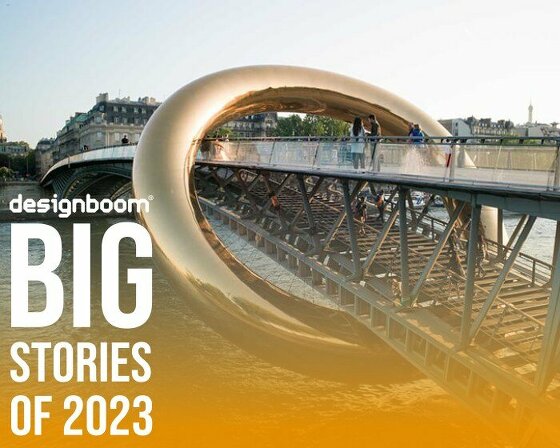Exploring the Digital Artistry of Andrés Reisinger
Argentinian artist Andrés Reisinger occupies a distinctive realm within the contemporary art landscape—a dynamic intersection of the digital and the physical. Currently residing in Spain, with two studios in Madrid and Barcelona, Reisinger acts as a conduit between worlds, infusing his recognizable dreamlike aesthetic with a clear artistic vision.
His artistic journey encompasses a wide range of works, such as the textured Hortensia chair, the viral AI-driven Take Over project, and the radiant monolithic Crystal residence designed in collaboration with architect Alba de la Fuente. Reisinger’s work goes beyond mere visuals, delving into the possibilities and boundaries of the digital medium. By exemplifying the fusion of technology and art, he creates pieces that speak to the digital age while maintaining a connection to the tangible world. His most recent collaboration with Impression Isla Mujeres by Secrets in Cancun is a case in point. The site-specific installation Impression, Sunrise, features his digital artworks overlooking the ocean, raising awareness of the endangerment of our ecosystem.
In a recent interview with designboom, Reisinger spoke about his creative journey, his dreamlike digital creations, their connection to the real world, and his views on NFTs and artificial intelligence. ‘I foresee a future where the digital world and the physical one are able to coexist, inform, and benefit each other,’ he shares. Read the interview in full, below.
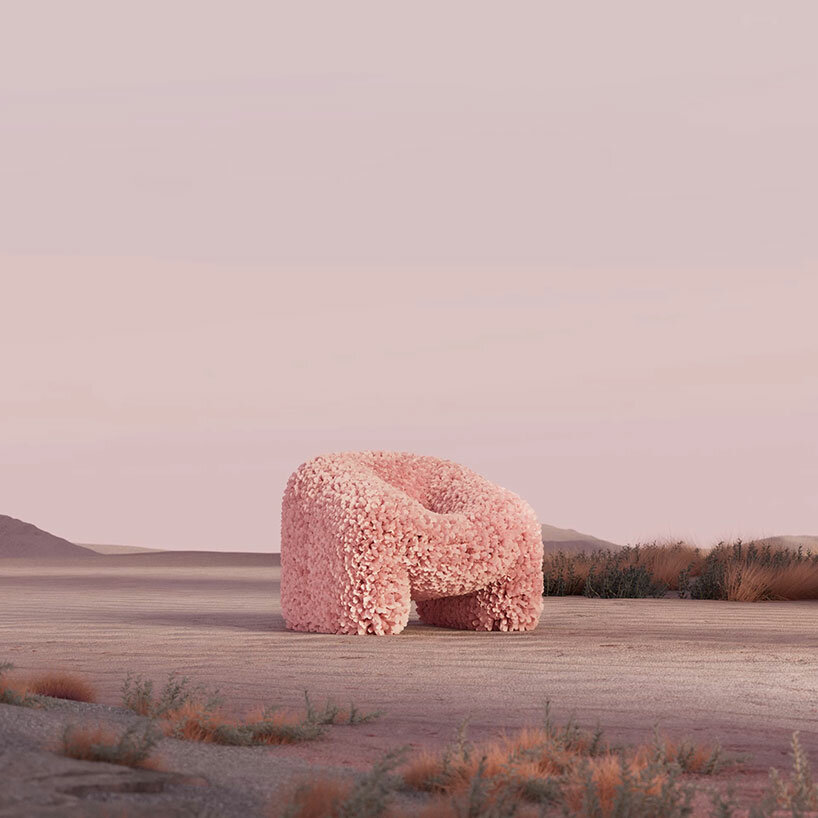
The Shipping Hortensia (2021) | all images courtesy of Andrés Reisinger, unless stated otherwise (head image: The Smell of Pink – Art Basel Miami 2021)
interview with andrés reisinger
designboom (DB): Can you share the story behind your fascination with digital art and design? What led you to focus your work on the digital realm?
Andrés Reisinger (AR): I think the story would have to be the story of my life. It all happened and continues to happen so spontaneously. I was always a creative and extremely disciplined spirit, drawn to all that is new and different, and to all that has no boundaries. The digital realm, right from the start, has been capturing my dedication because I understood it would be my ever-ending field of experimentation.
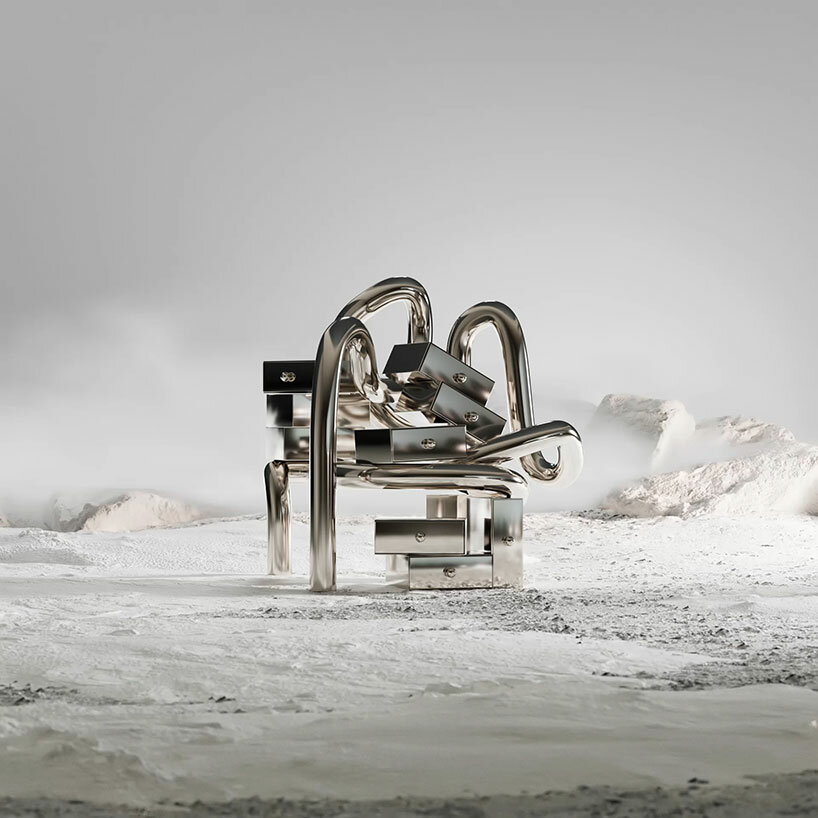
The Shipping Complicated Drawer (2021)
DB: Your Take Over series has gained significant popularity on social media, but it has also faced criticism due to its use of artificial intelligence. What are your thoughts on AI’s role in art and design? How do you envision artists leveraging AI in the future?
AR: The general knowledge is still too limited to even think about the beneficial potentials of AI, not just in design but generally in society. My work is focused on two specific goals. The first is helping alleviate the distance, fear, and anger towards AI you just mentioned by inviting individuals to consider a different viewpoint and envision a novel experience, one where the digital and physical realms coexist and complement each other. It’s really already happening in our day to day.
The second is to develop a modus operandi whereby we create demand before supply: testing the desires of the public firstly on the digital sphere, experimenting and achieving the ideal outcome digitally, and only then bringing it to physical form. This saving of resources is the benefit of a society that can learn how to use all that is available to it in an optimal way.
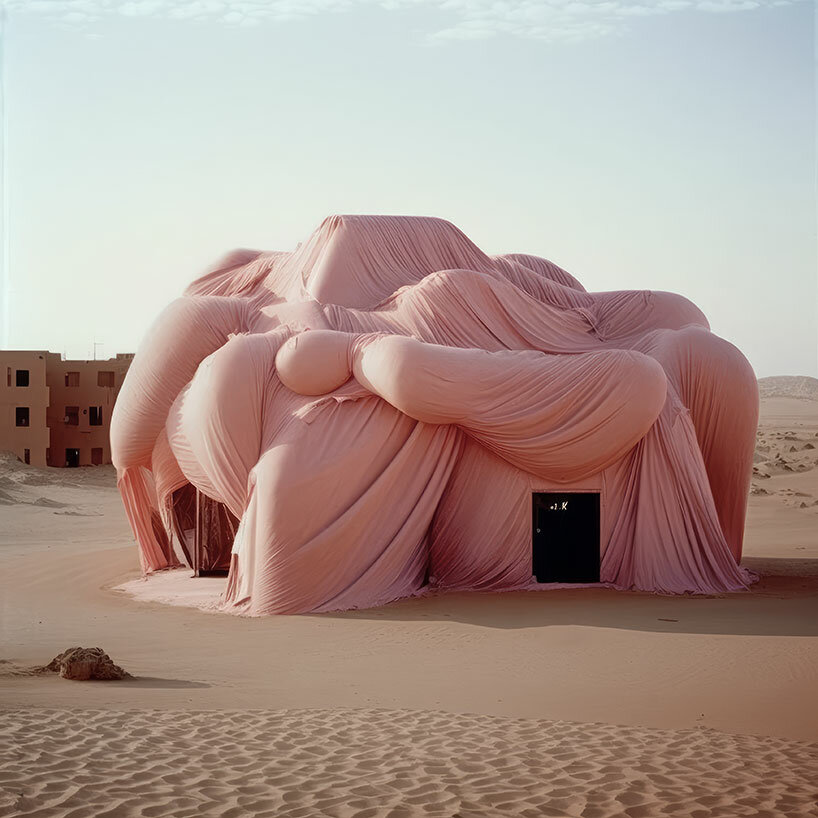
Take Over Dubai
DB: As a digital artist, you’ve experienced the fluctuations and uncertainties of the cryptocurrency and NFT markets. How do you adapt and navigate these challenges in your creative process and career?
AR: I don’t think anything really certain does exist. I continue to create, following my instincts with an eye towards what is happening – this is the only thing anyone can do. Fluctuations and changes happen continuously, in all sectors, so courage and confidence are key.
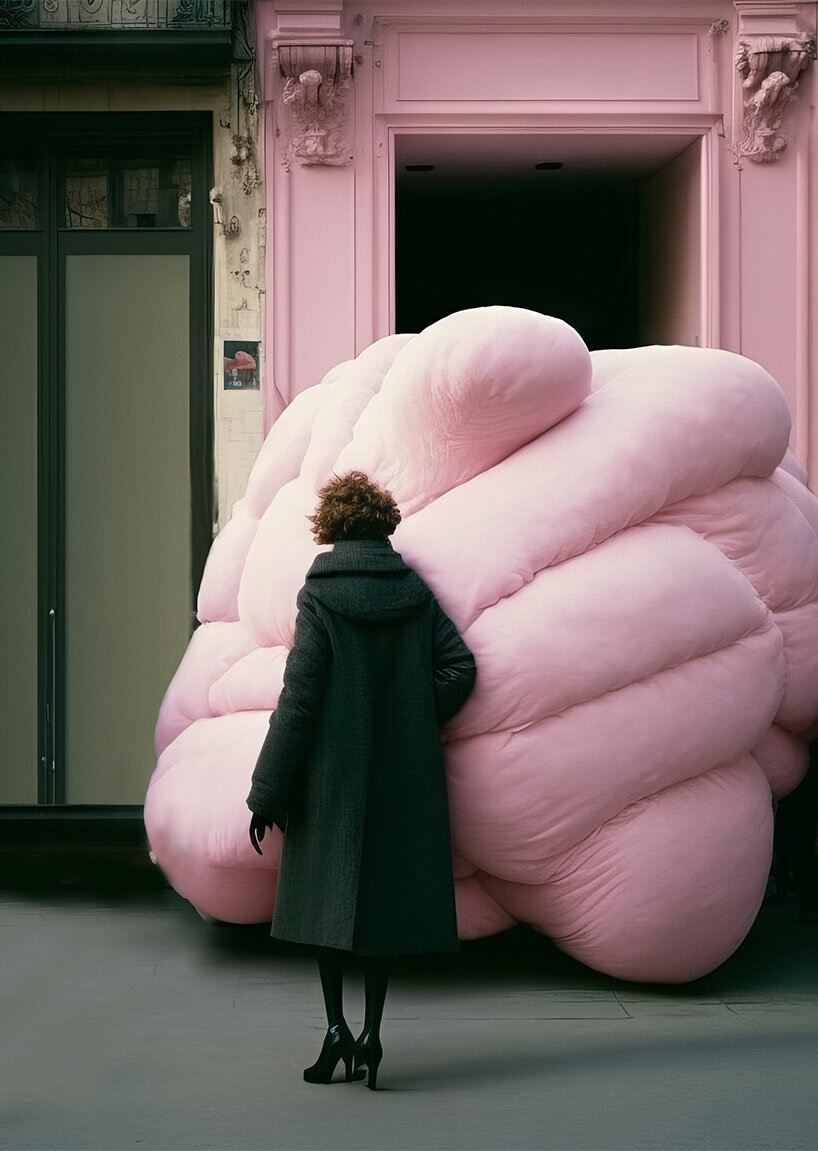
Take Over Paris
DB: How do you perceive the evolving relationship between digital art and the NFT market? What opportunities and challenges do you foresee for artists in this space?
AR: I’d say it is crucial to push ourselves to break our own creative limits. Definitions and concepts of feasibility are all our own constructs, and the digital space can break them, if we’re able to allow our creative freedom to do so. It also gives artists far more control of their own creations, generating a possibility to create a first-hand link and sell artwork in digital form directly to a global audience of buyers without using an auction house or gallery; this allows them to keep a significantly greater portion of the profits they make from sales.
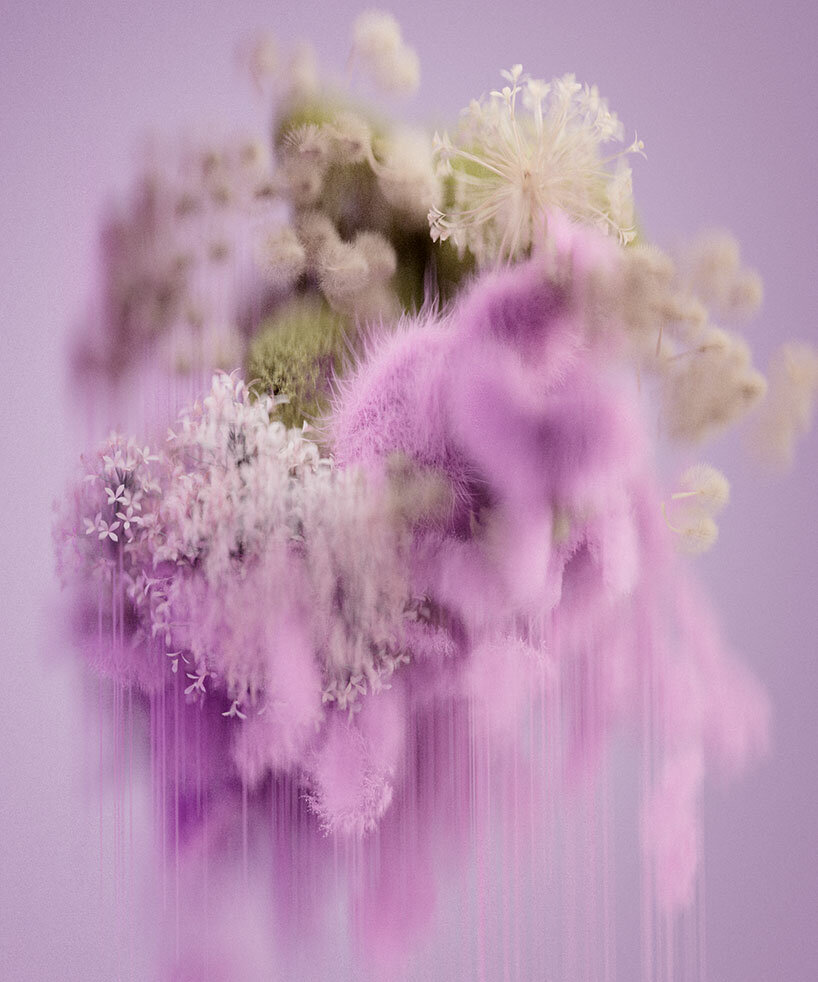
Pollen Spring
DB: You have collaborated with well-known brands like Dior Beauty. Could you shed some light on how you balance artistic expression with brand partnerships in the metaverse? What do you find most rewarding about such collaborations, and have you encountered any specific challenges?
AR: I always work with partners who have respect and appreciation for my practice, as well as share values that are similar to my own: This is how I am able to keep freedom of creative expression in a way that complements theirs. That was the case with Dior, a very enriching collaboration. It is interesting to be part of the change, to accompany such important brands in their first venture in the digital realm: it is a growing path for them as it is for the creator. The participation of such players in the Web3 space holds the key to unlocking new possibilities of innovation, creativity, and value creation, driving it to its full potential.

Gris Dior Gallery
DB: With diverse opinions on the potential impact of the metaverse, what is your personal vision for this digital realm, and how do you see it shaping society and culture in the long term?
AR: I foresee a future where the digital world and the physical one are able to coexist, inform, and benefit each other. Right now, we’re thinking of them and using them as two separate realms, almost opposite to each other if not antagonists. What I mentioned about the potential of reaching an ideal output in the digital realm before producing it into physical shape can be applied to anything, even in large-scale systems such as cities.
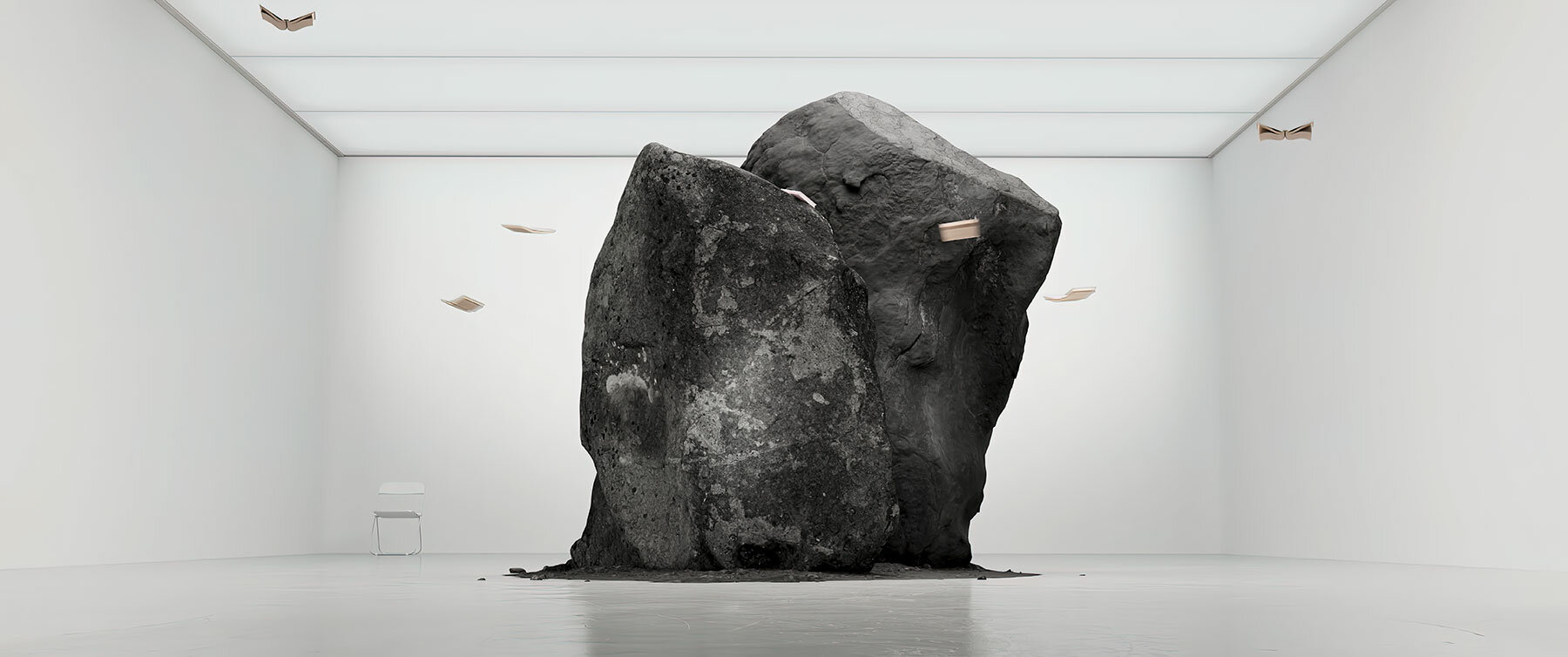
Arcadia (2021)
DB: Your latest project ‘Crystal House’ is designed with tangible-world applicability in mind. Have you become more interested in the physical realm as time progresses? Can you elaborate on how your perspective has evolved and how you find synergy between digital and physical spaces?
AR: I’ve always been interested in and operated in the physical realm; the richness of craftsmanship, the engagement of all senses are qualities that cannot and should not be substituted with weak attempts of replications. The digital and physical realms both have qualities that are inimitable, but complementary. Taking my Hortensia as an example, as similar as they might be, its digital being and physical one are different from each other, and convey different feelings as well as serving different purposes. Complements, that is the synergy I perceive.
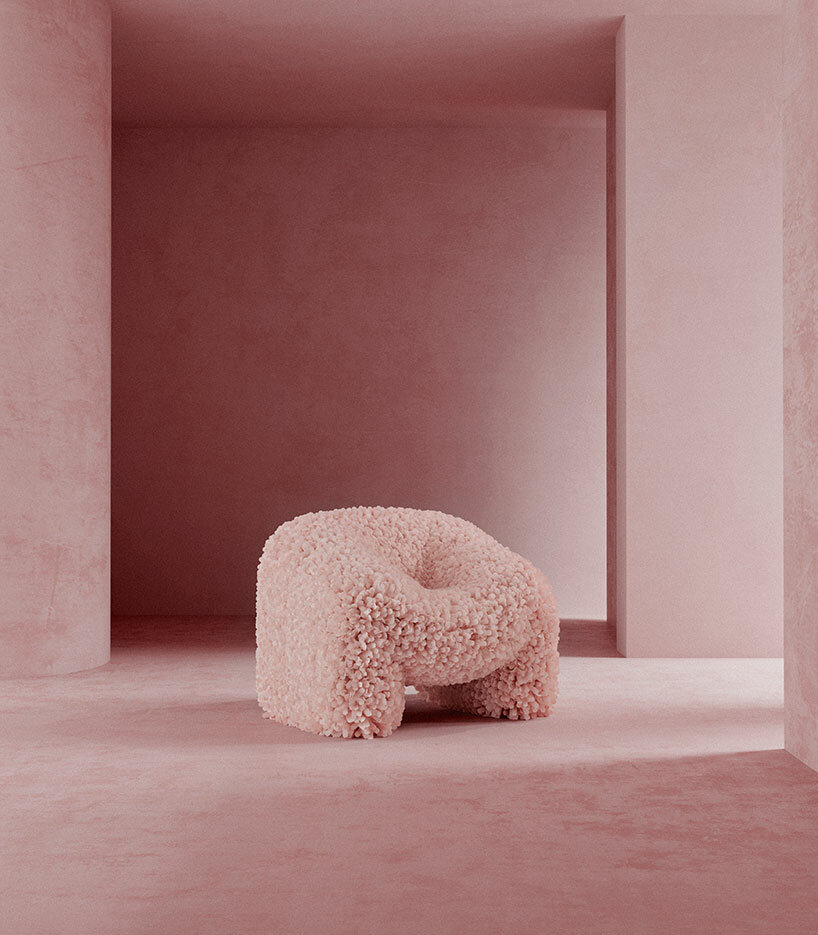
Hortensia Digital Piec (2018)
DB: Could you tell us more about your collaboration with Impression Isla Mujeres by Secrets for the ‘Impression, Sunrise’ exhibition? How did this partnership come about?
AR: I was introduced to the team by a close friend; the resort in Mexico, of the Inclusive Collection part of the World of Hyatt, has always had a purpose-driven ethos and an ongoing relationship with Saving Our Shark Foundation. The collaboration stemmed from the desire to engage culture in raising awareness about the importance of preserving the marine ecosystem. Hence the exhibition Impression, Sunrise came to be, a curation of some of my digital artworks set against the backdrop of the ocean vistas, alongside the site-specific installation of my floating artifacts Pink Meditation Buoys.
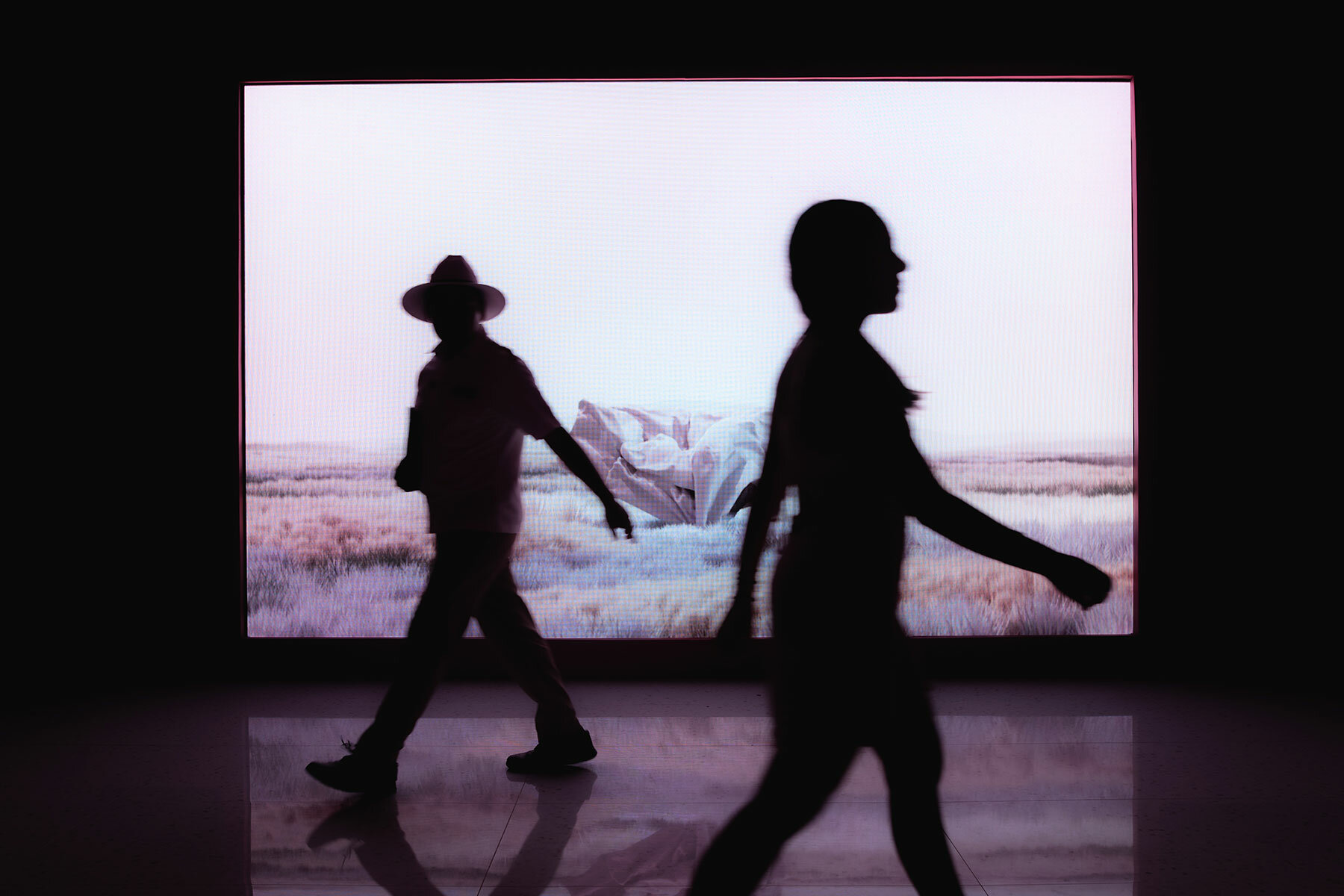
The Wither installation – Impression, Sunrise exhibition | image by Dream Art Photography
DB: The exhibition aims to raise awareness about the endangerment of our ecosystem. How do you believe digital art can be used as a tool for change in addressing environmental issues? How can it make a tangible impact on visitors?
AR: Art, in general, conveys ideas in an acute manner – it engages different senses in a very, and often inexplicable, direct, rational, and irrational impact. It makes a statement and leaves a mark, whether long-lasting or not. The endangerment of our ecosystem is one of the most alarming issues of our times, and although it affects us directly, we often fail to immediately comprehend how it is indeed affecting us. With its direct impact, art focuses our attention and involvement temporarily towards a matter – in time, that moment becomes a memory and serves as a reminder. That is the awareness, and that is the tangible impact. ‘Art as a tool for change,’ something that my friend Ximena Caminos often says and I keep in my mind.
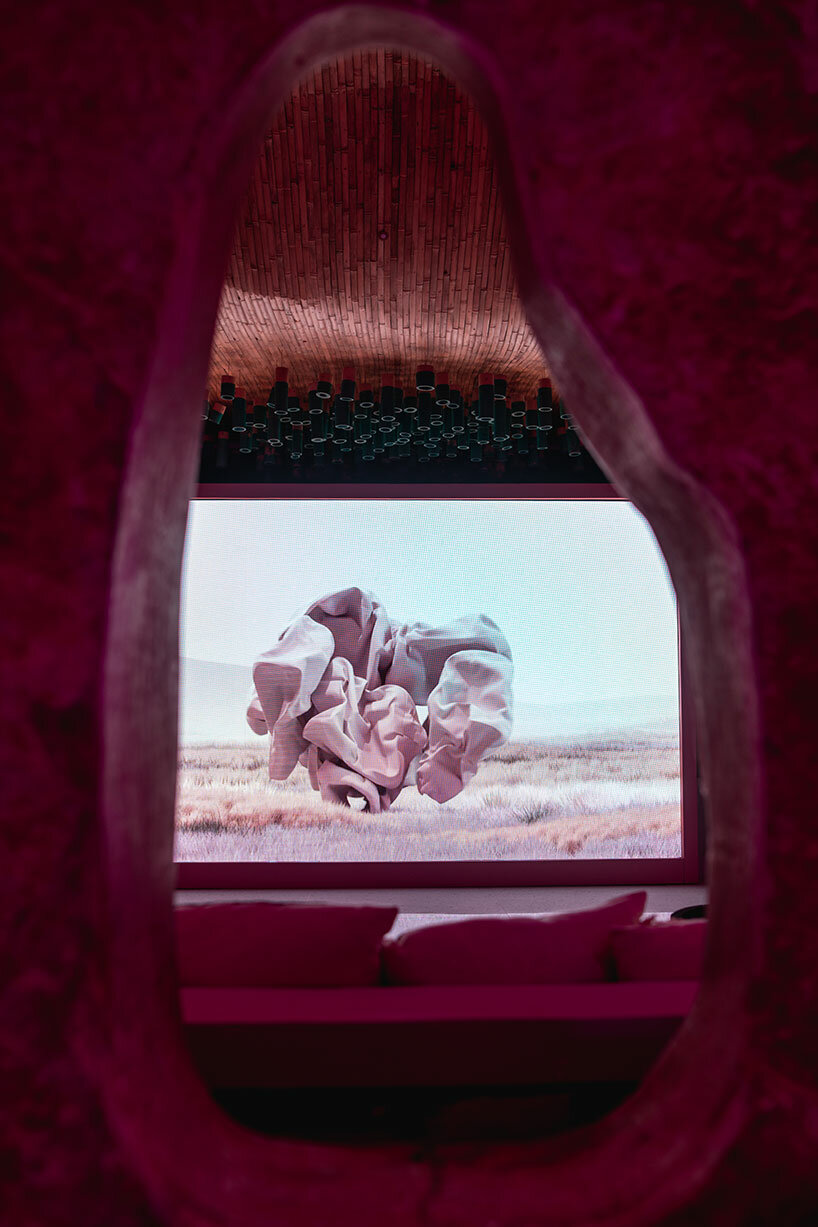
The Wither installation – Impression, Sunrise exhibition | image by Dream Art Photography
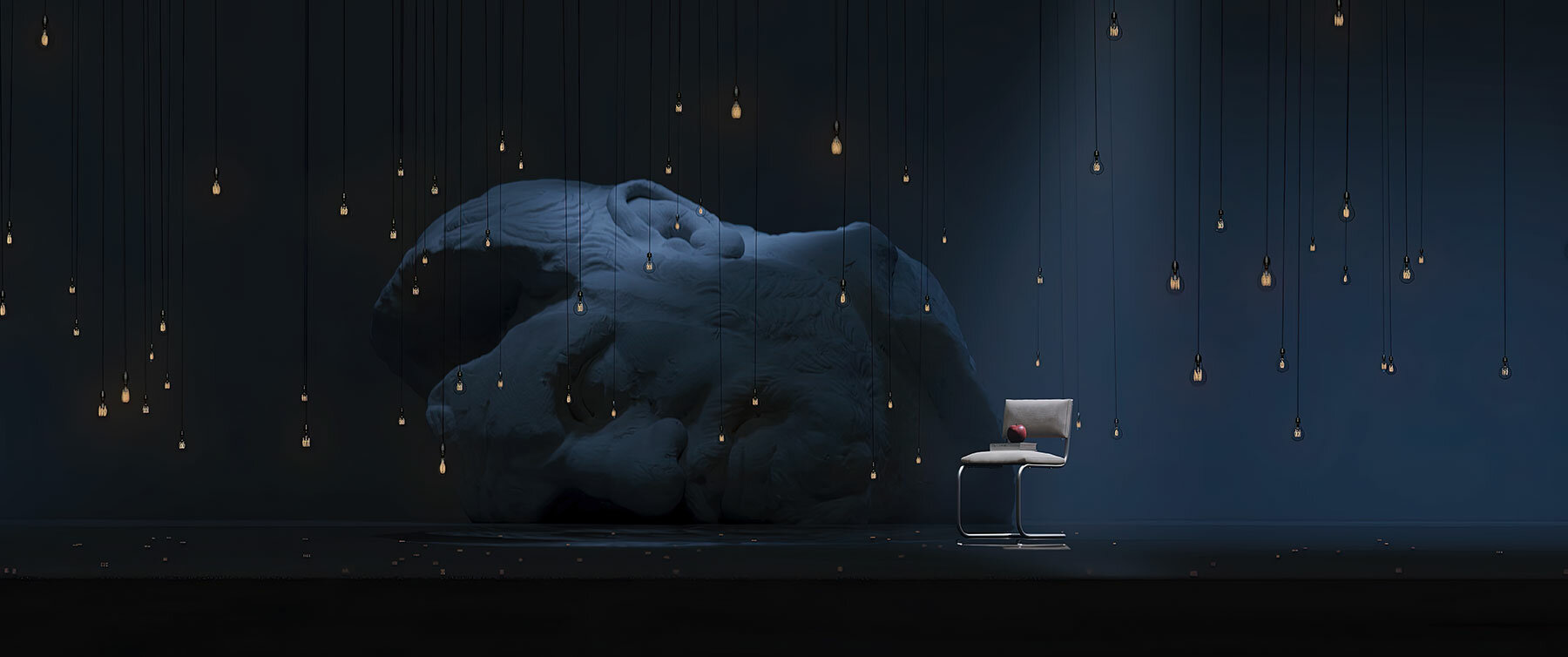
Arcadia (2021)
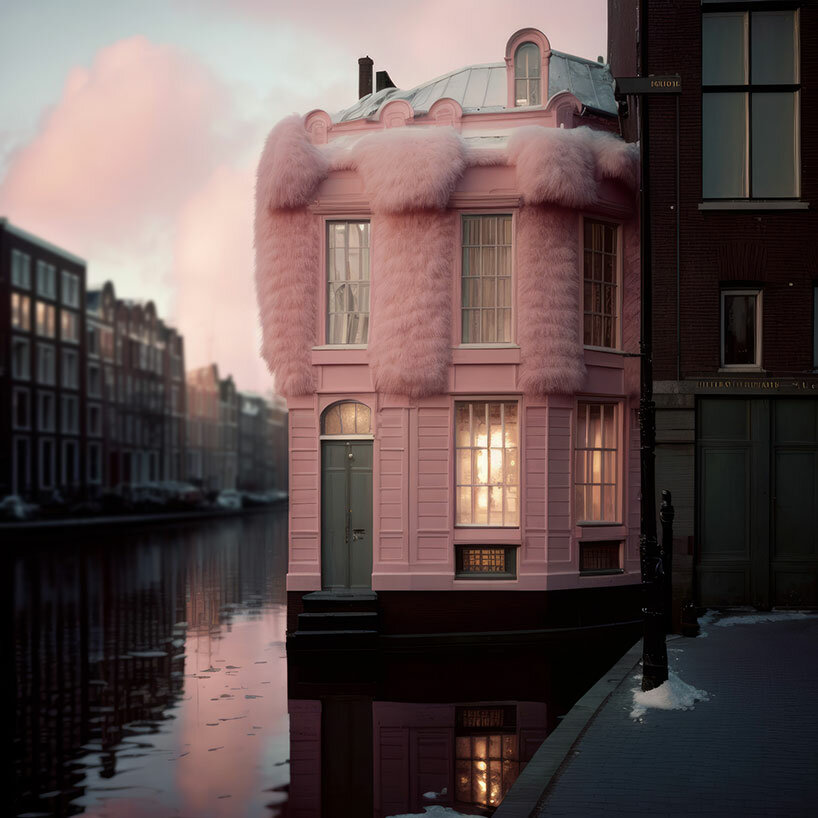
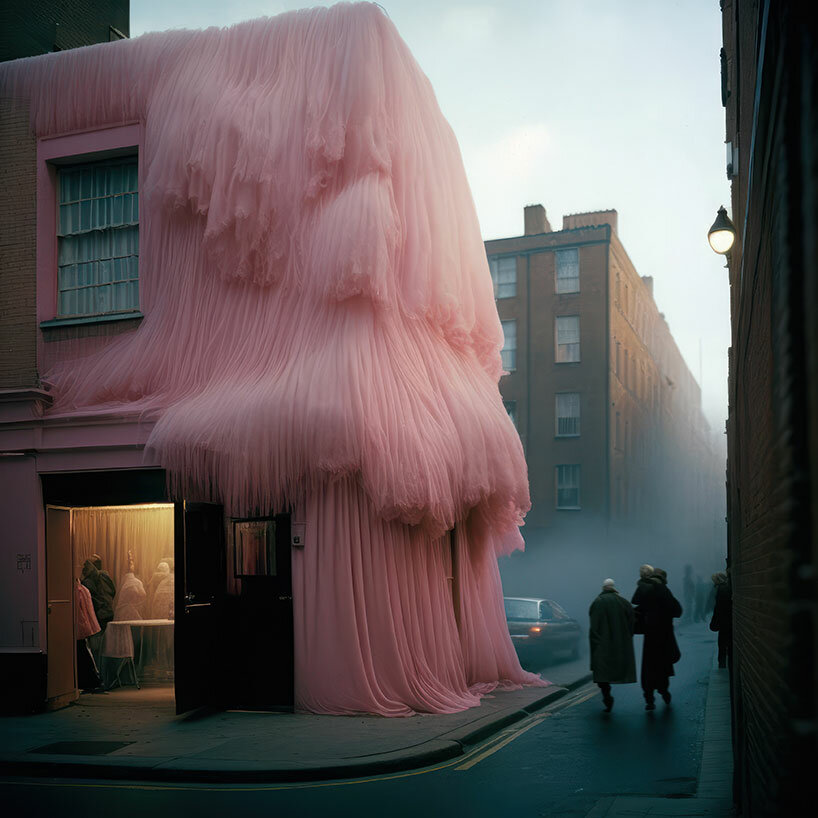
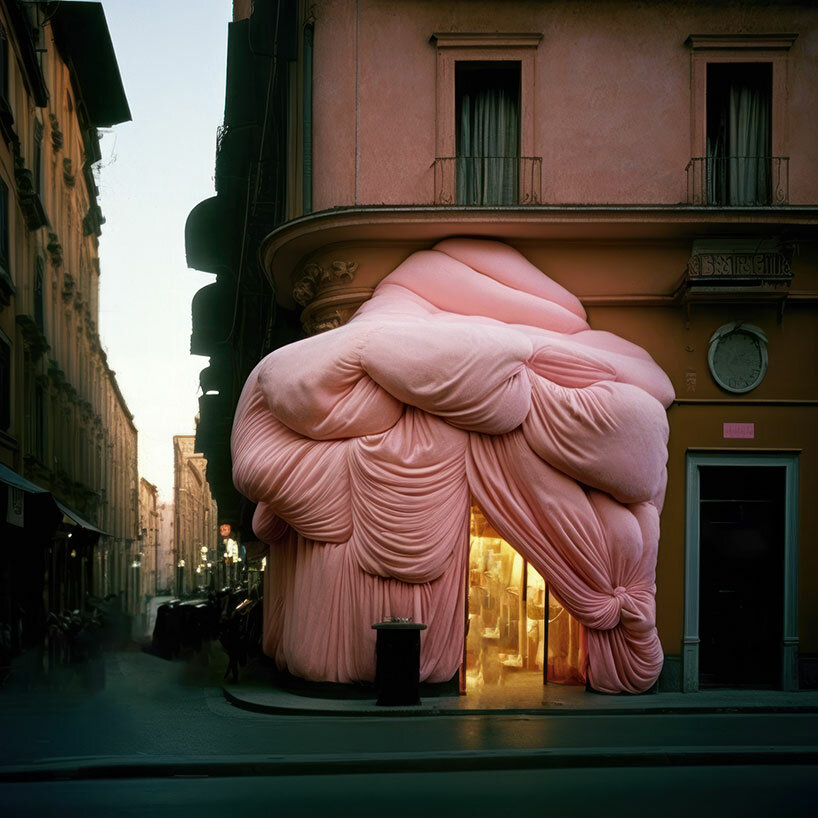
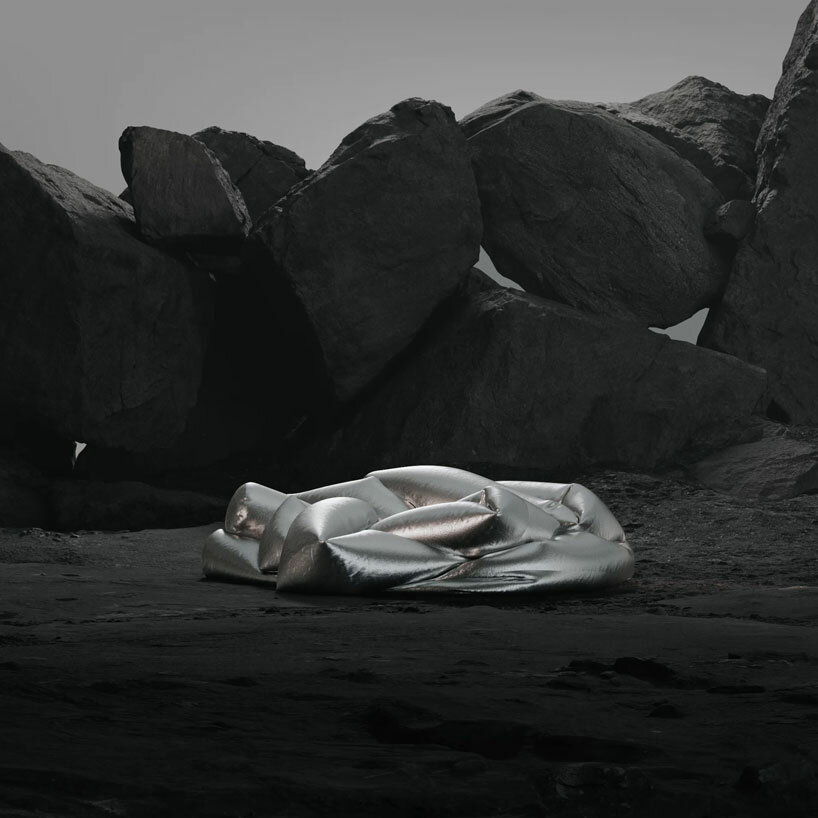
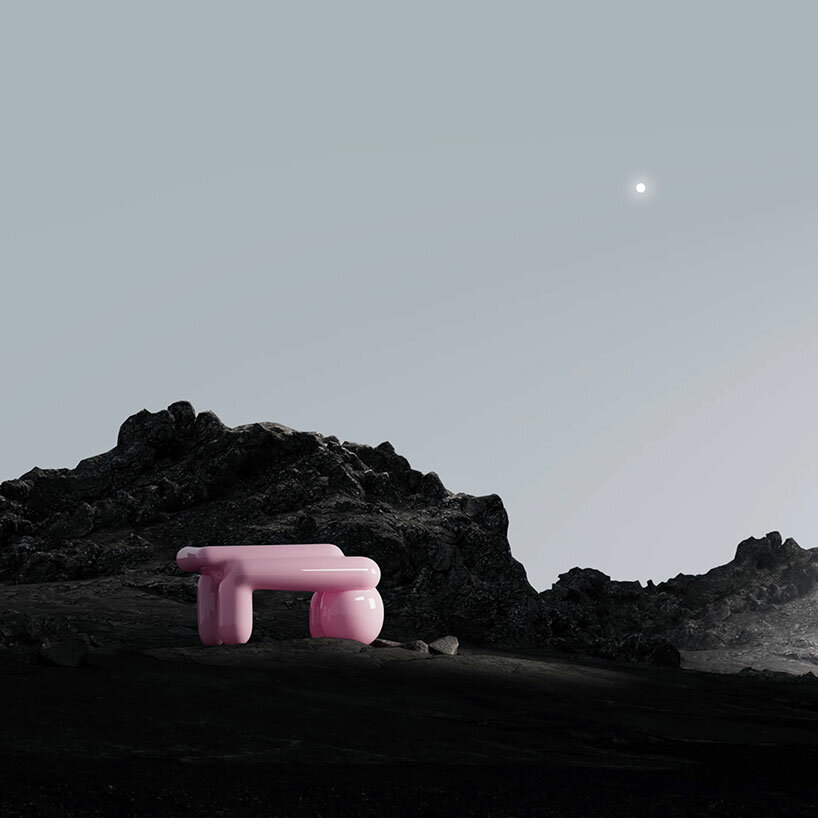
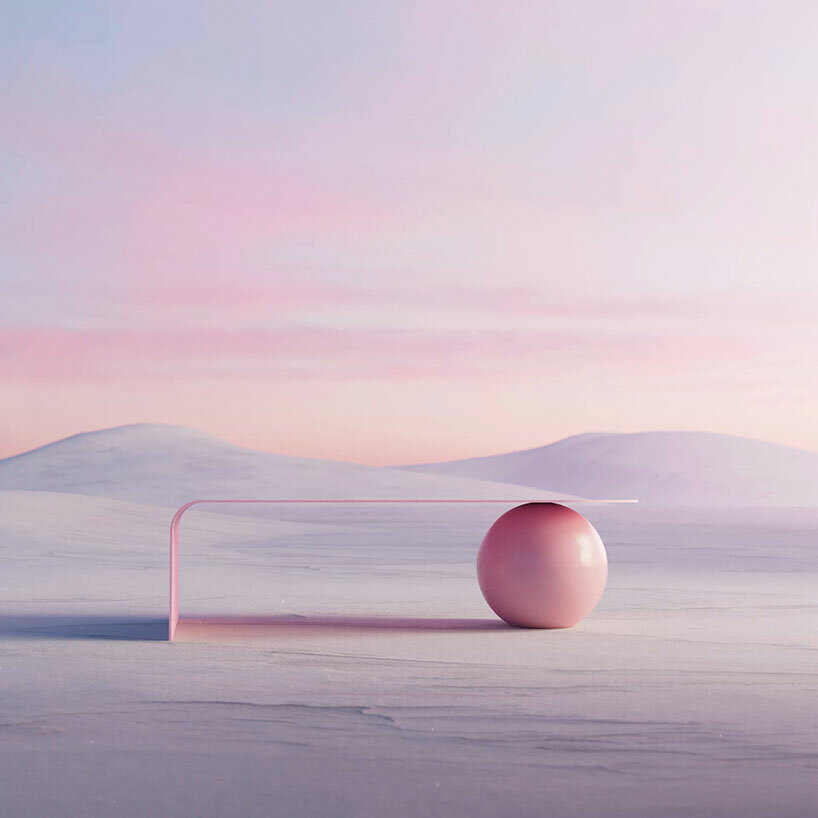
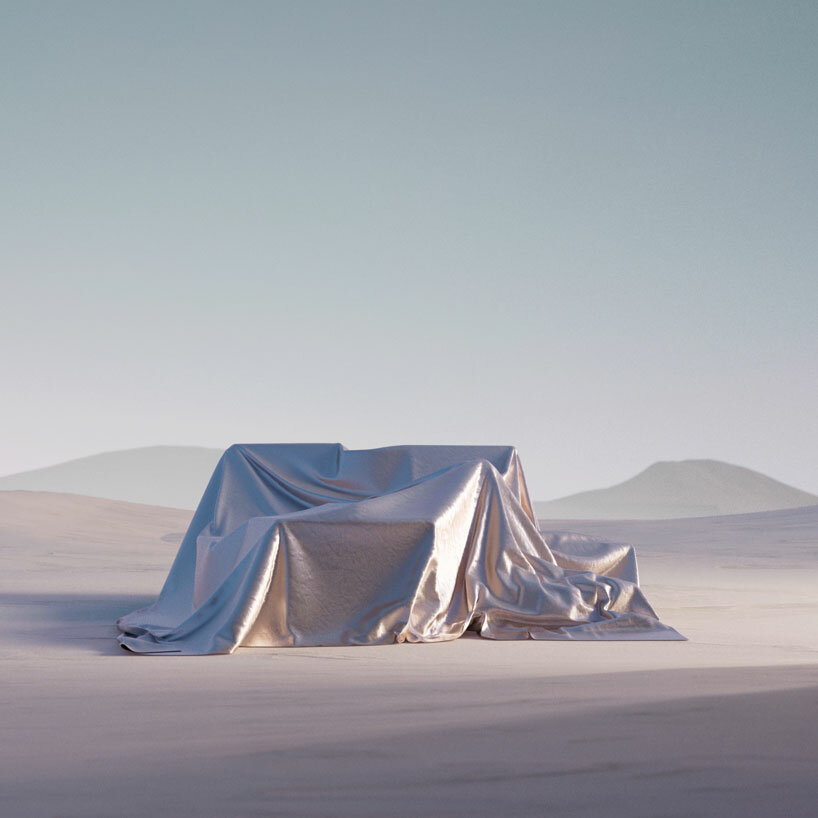
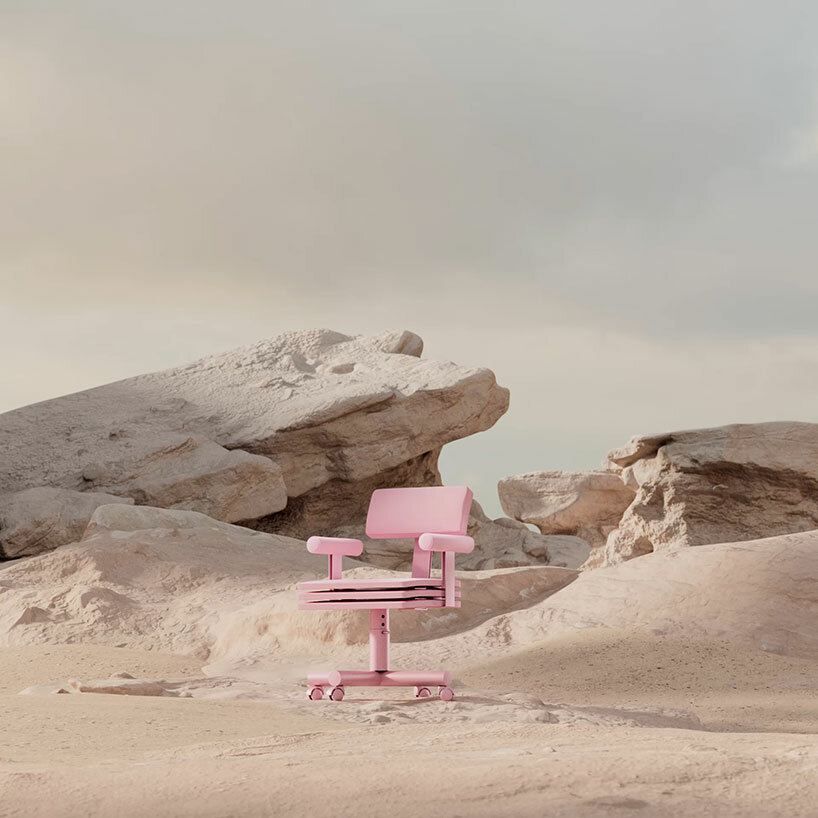
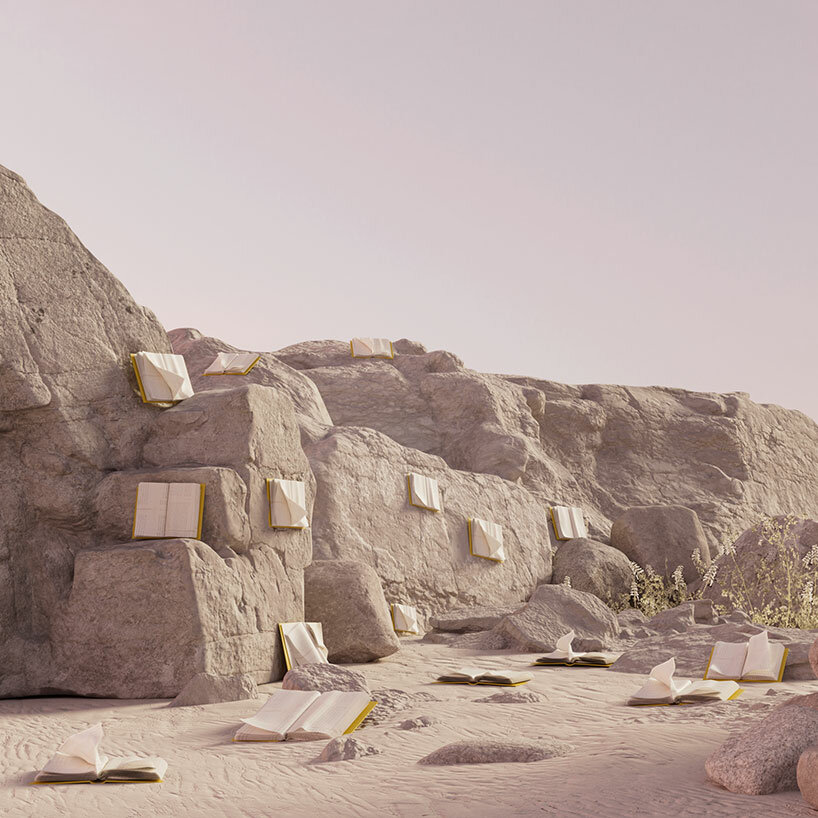

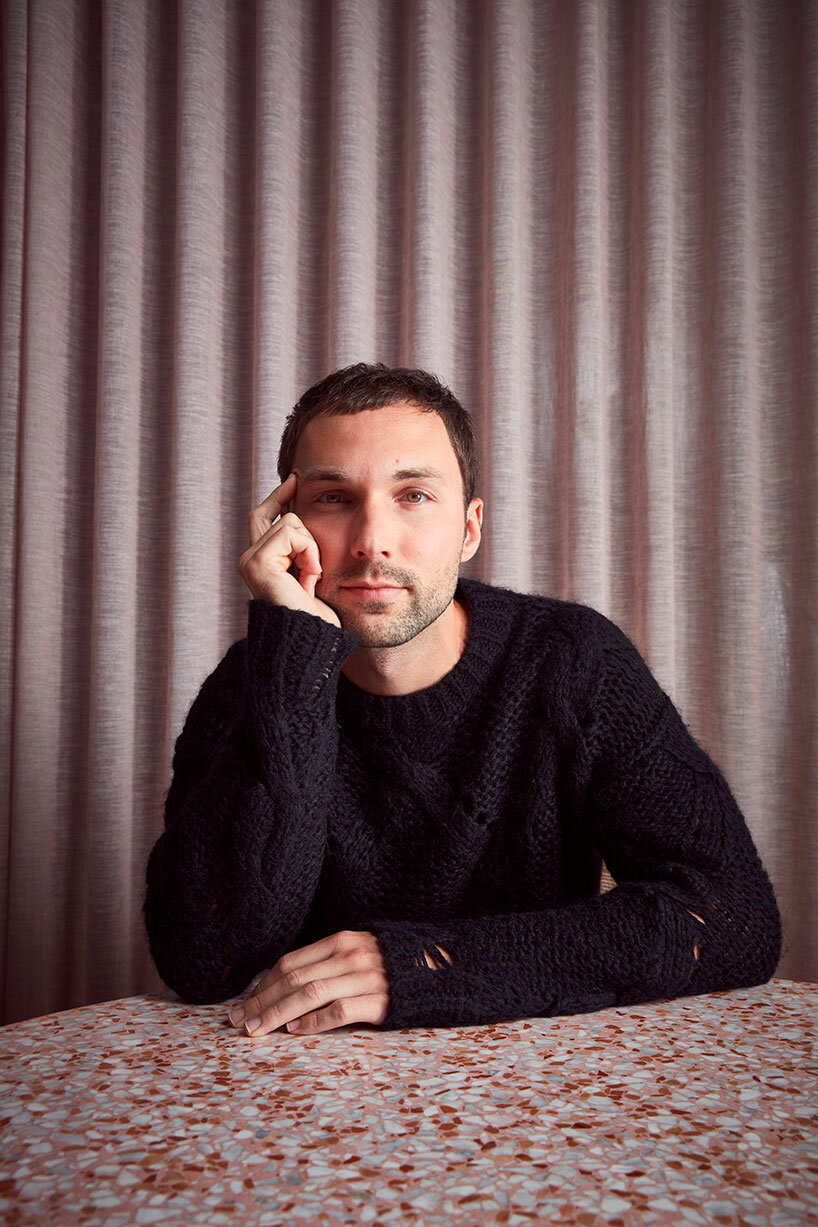
Andrés Reisinger portrait | image © Mark Cocksedge
ANDRéS REISINGER (13)
ART INTERVIEWS (113)
DIGITAL ART (120)
PRODUCT LIBRARY
a diverse digital database that acts as a valuable guide in gaining insight and information about a product directly from the manufacturer, and serves as a rich reference point in developing a project or scheme.
